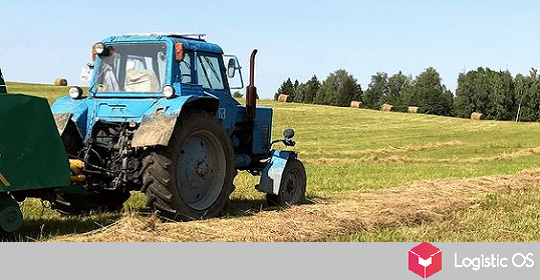Despite all the difficulties, grain exports from the Russian Federation this season can show the maximum values over the past few years.
As noted in the analytical center Sovecon, Russia entered 2023 with record stocks of wheat, in total, farmers have about 12 million tons stored in the country, which is twice the average value over the past 5 years.
This is different in different regions. For example, as much as 2.7 million tons of wheat have accumulated in the Volga region, which is 108% more than last year’s values.
In the central part of the country — 3.9 million tons — 95% more. In the south — 2.9 million, 45% more.
There are several reasons for this:
— Record grain harvest in Russia last season.
— Various difficulties associated with exports, primarily due to sanctions.
— Highly volatile exchange rate of the ruble.
— High freight rates.
— Difficulties with logistics: for example, foreign insurance companies refused to provide their ships and insure cargo.
— High export duties.
— Low world prices for wheat.
Nevertheless, Sovecon expects that wheat exports from Russia this year could reach a record high of 44.5 million tons. This is 23% more than the average.
However, in June the pace of exports may slow down a bit.
But it is still expected that it will remain at the level of 2.7 million tons. And this is a very high value: the absolute record was set in 2018, 2.77 million tons.
Why are farmers in no hurry to sell their crops?
This is largely due to the fact that extremely unfavorable low prices have been established on the market today.
In addition, producers can wait for the export duty to be reduced, which could happen as early as early June.
However, a number of experts believe that the reduction of the duty by itself through a change in the formula for its calculation will not solve the problem of the low marginality of Russian farmers.
Despite the fact that the duty will become noticeably lower, prices have also fallen significantly, so nothing has changed globally: it is unlikely that exporters will be able to earn more money from each ton than before.
At the same time, prices for agricultural machinery, for example, have risen significantly, as well as for fertilizers, and it is increasingly difficult for manufacturers to remain profitable.
As a result, the situation is so serious that it is even planned to discuss at the next parliamentary hearings the question of how expedient the export duty is in the current conditions.
As Vladimir Plotnikov, First Deputy Chairman of the State Duma for Agrarian Affairs, noted, this could happen as early as June.

